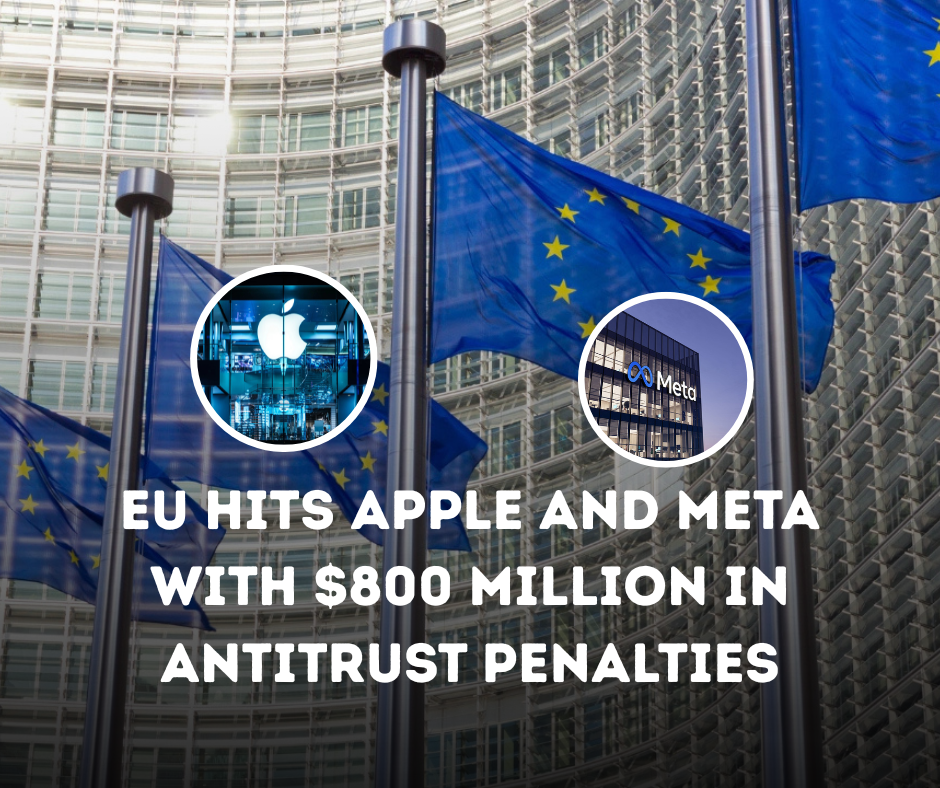In a significant move that reinforces the European Union’s hard stance on Big Tech, regulators have slapped Apple and Meta (the parent company of Facebook and Instagram) with a combined $800 million in antitrust fines. The EU’s decision is part of its broader effort to ensure fair competition and protect consumer rights in the rapidly evolving digital marketplace.
Why the EU Is Cracking Down
The European Commission, which enforces antitrust rules across EU member states, determined that both tech giants engaged in practices that limited competition and harmed consumers. According to officials, Apple allegedly imposed restrictive rules on app developers, while Meta has been accused of using its dominant position in social media and advertising to stifle smaller rivals.
For many, especially those who have watched the rise of these digital giants over the past two decades, this moment feels like a turning point. Regulators are no longer willing to let massive tech firms operate without meaningful oversight. Instead, they’re demanding accountability—especially when it comes to how these platforms use their influence.
What This Means for Consumers
For older adults who’ve increasingly embraced digital tools—whether to connect with family, shop online, or manage finances—this decision has real implications. When competition is stifled, consumers often face higher prices, fewer choices, and limited access to innovative services. By penalizing anti-competitive behavior, the EU aims to create a healthier digital economy that works for everyone, not just tech insiders.
A Long Time Coming
This isn’t the first time Apple and Meta have faced scrutiny in Europe. Over the past few years, both companies have been at the center of various investigations related to data privacy, advertising practices, and their growing market dominance. The $800 million fine may be the largest in this case, but it’s likely not the last.
Looking Ahead
The EU has also introduced new rules under the Digital Markets Act, which will take even stronger steps to regulate so-called “gatekeepers”—the largest and most influential digital platforms. For consumers, this could mean greater transparency, more control over personal data, and easier switching between services.
As this story develops, it’s clear the message from Europe is strong and unmistakable: the era of unchecked digital dominance is coming to an end.
